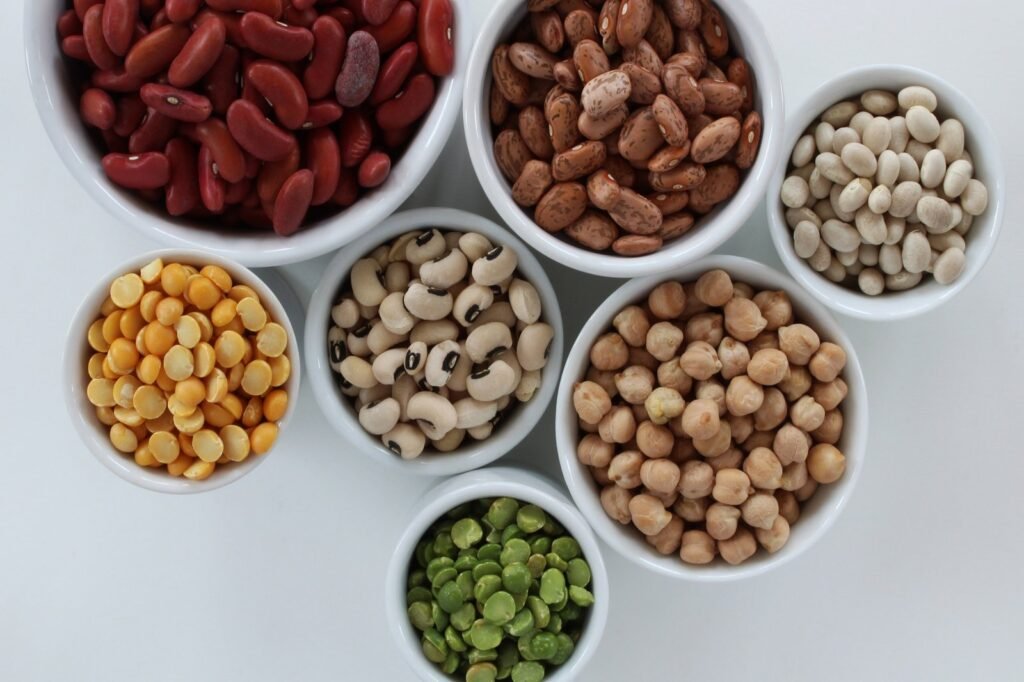In recent years, plant-based diets have surged in popularity, driven by growing awareness of health benefits, environmental impact, and animal welfare. However, with this rise comes a wave of misconceptions about plant-based protein. Let’s cut through the noise and debunk the most common myths surrounding this essential nutrient.
Table of Contents

Myth 1: Plant-Based Protein is Incomplete and Inferior
One of the most persistent myths is that plant proteins are nutritionally inferior to animal proteins because they lack certain essential amino acids. While it’s true that some plant sources may have lower levels of certain amino acids, this doesn’t make them “incomplete” in the practical sense. In fact, most plant proteins contain all nine essential amino acids, just in varying proportions.
For example, quinoa, soy, buckwheat, and chia seeds are complete proteins, providing all essential amino acids. Moreover, by consuming a variety of plant-based protein sources, like beans, lentils, nuts, seeds, and whole grains, you can easily meet your amino acid needs without the need for precise meal planning.
Myth 2: You Can’t Build Muscle on Plant-Based Protein
Another common misconception is that athletes and bodybuilders can’t thrive on a plant-based diet due to a supposed lack of quality protein. However, many elite athletes, including Olympic weightlifters, endurance runners, and bodybuilders, have proven this wrong. Studies have shown that muscle gain and recovery are comparable in those consuming plant-based proteins versus animal proteins, provided overall protein intake is sufficient.
Key options like pea protein, soy protein isolate, and hemp protein are highly bioavailable and can support intense training regimens. Moreover, plant-based diets often come with added benefits, like reduced inflammation and quicker recovery, due to the abundance of antioxidants and phytonutrients.
Myth 3: Plant Proteins Are Hard to Digest
Some argue that plant proteins are harder for the body to digest, leading to bloating or reduced absorption. While it’s true that certain plant foods contain antinutrients (like phytic acid and lectins), these can be minimized through soaking, sprouting, fermenting, and cooking. Additionally, the fiber content in plant proteins supports gut health and can improve long-term nutrient absorption.
Myth 4: You Can’t Get Enough Protein from Plants Alone
Contrary to this belief, numerous studies have confirmed that it’s entirely possible to meet protein needs on a plant-based diet, even for those with high protein requirements. For example, athletes typically require 1.2-2.0 grams of protein per kilogram of body weight, which can be easily achieved through a mix of lentils, chickpeas, tofu, nuts, seeds, and protein-rich grains like quinoa.
Myth 5: Plant Proteins Lack Variety and Flavor
Another common myth is that plant-based proteins are bland and repetitive. However, with a diverse range of options like tofu, tempeh, seitan, legumes, and nuts, there is no shortage of delicious, protein-rich choices. Plus, these foods readily absorb flavors from spices, marinades, and sauces, making them incredibly versatile in cooking.
Choosing the Right Plant Proteins
When adopting a plant-based diet, variety is key. Focus on combining different protein sources to ensure you get a full spectrum of amino acids. This approach not only supports muscle growth and recovery but also enhances overall health by providing a rich array of vitamins, minerals, and antioxidants.
I hope you like this blog, Here are some more that you might like to read:
- High-Protein Vegan Foods: Power Up Your Plant-Based Diet
- Beginner’s Vegan Weight Loss Plan: A Comprehensive Guide
























